第6章
Taking the population of the world at any number, a thousand millions, for instance, the human species would increase in the ratio of -- 1, 2, 4, 8, 16, 32, 64, 128, 256, 512, etc. and subsistence as -- 1, 2, 3, 4, 5, 6, 7, 8, 9, 10, etc. In two centuries and a quarter, the population would be to the means of subsistence as 512 to 10: in three centuries as 4096 to 13, and in two thousand years the difference would be almost incalculable, though the produce in that time would have increased to an immense extent.
No limits whatever are placed to the productions of the earth; they may increase for ever and be greater than any assignable quantity. yet still the power of population being a power of a superior order, the increase of the human species can only be kept commensurate to the increase of the means of subsistence by the constant operation of the strong law of necessity acting as a check upon the greater power.
The effects of this check remain now to be considered.
Among plants and animals the view of the subject is simple.
They are all impelled by a powerful instinct to the increase of their species, and this instinct is interrupted by no reasoning or doubts about providing for their offspring. Wherever therefore there is liberty, the power of increase is exerted, and the superabundant effects are repressed afterwards by want of room and nourishment, which is common to animals and plants, and among animals by becoming the prey of others.
The effects of this check on man are more complicated.
Impelled to the increase of his species by an equally powerful instinct, reason interrupts his career and asks him whether he may not bring beings into the world for whom he cannot provide the means of subsistence. In a state of equality, this would be the simple question. In the present state of society, other considerations occur. Will he not lower his rank in life? Will he not subject himself to greater difficulties than he at present feels? Will he not be obliged to labour harder? and if he has a large family, will his utmost exertions enable him to support them? May he not see his offspring in rags and misery, and clamouring for bread that he cannot give them? And may he not be reduced to the grating necessity of forfeiting his independence, and of being obliged to the sparing hand of charity for support?
These considerations are calculated to prevent, and certainly do prevent, a very great number in all civilized nations from pursuing the dictate of nature in an early attachment to one woman. And this restraint almost necessarily, though not absolutely so, produces vice. Yet in all societies, even those that are most vicious, the tendency to a virtuous attachment is so strong that there is a constant effort towards an increase of population. This constant effort as constantly tends to subject the lower classes of the society to distress and to prevent any great permanent amelioration of their condition.
The way in which, these effects are produced seems to be this. We will suppose the means of subsistence in any country just equal to the easy support of its inhabitants. The constant effort towards population, which is found to act even in the most vicious societies, increases the number of people before the means of subsistence are increased. The food therefore which before supported seven millions must now be divided among seven millions and a half or eight millions. The poor consequently must live much worse, and many of them be reduced to severe distress.
The number of labourers also being above the proportion of the work in the market, the price of labour must tend toward a decrease, while the price of provisions would at the same time tend to rise. The labourer therefore must work harder to earn the same as he did before. During this season of distress, the discouragements to marriage, and the difficulty of rearing a family are so great that population is at a stand. In the mean time the cheapness of labour, the plenty of labourers, and the necessity of an increased industry amongst them, encourage cultivators to employ more labour upon their land, to turn up fresh soil, and to manure and improve more completely what is already in tillage, till ultimately the means of subsistence become in the same proportion to the population as at the period from which we set out. The situation of the labourer being then again tolerably comfortable, the restraints to population are in some degree loosened, and the same retrograde and progressive movements with respect to happiness are repeated.